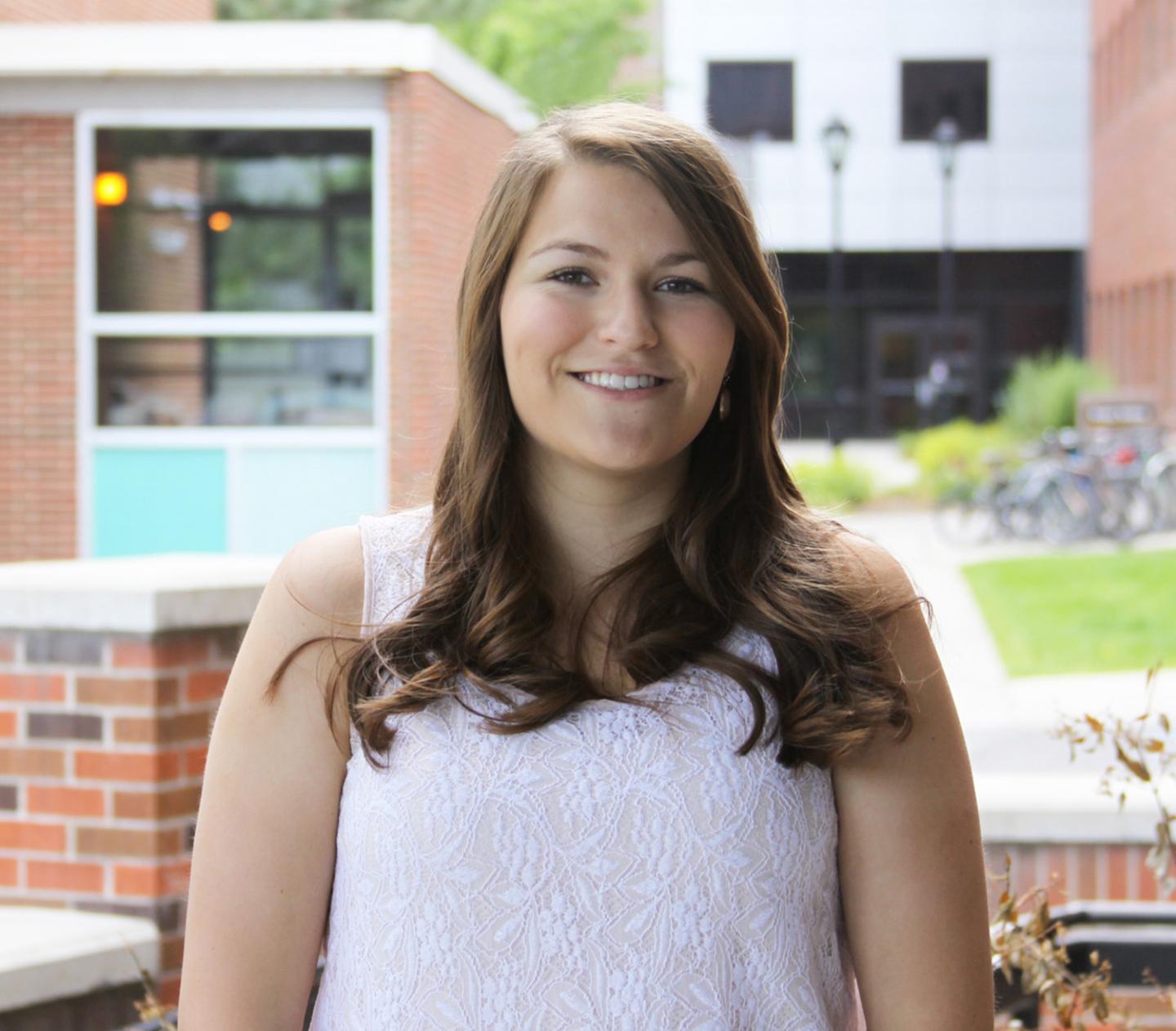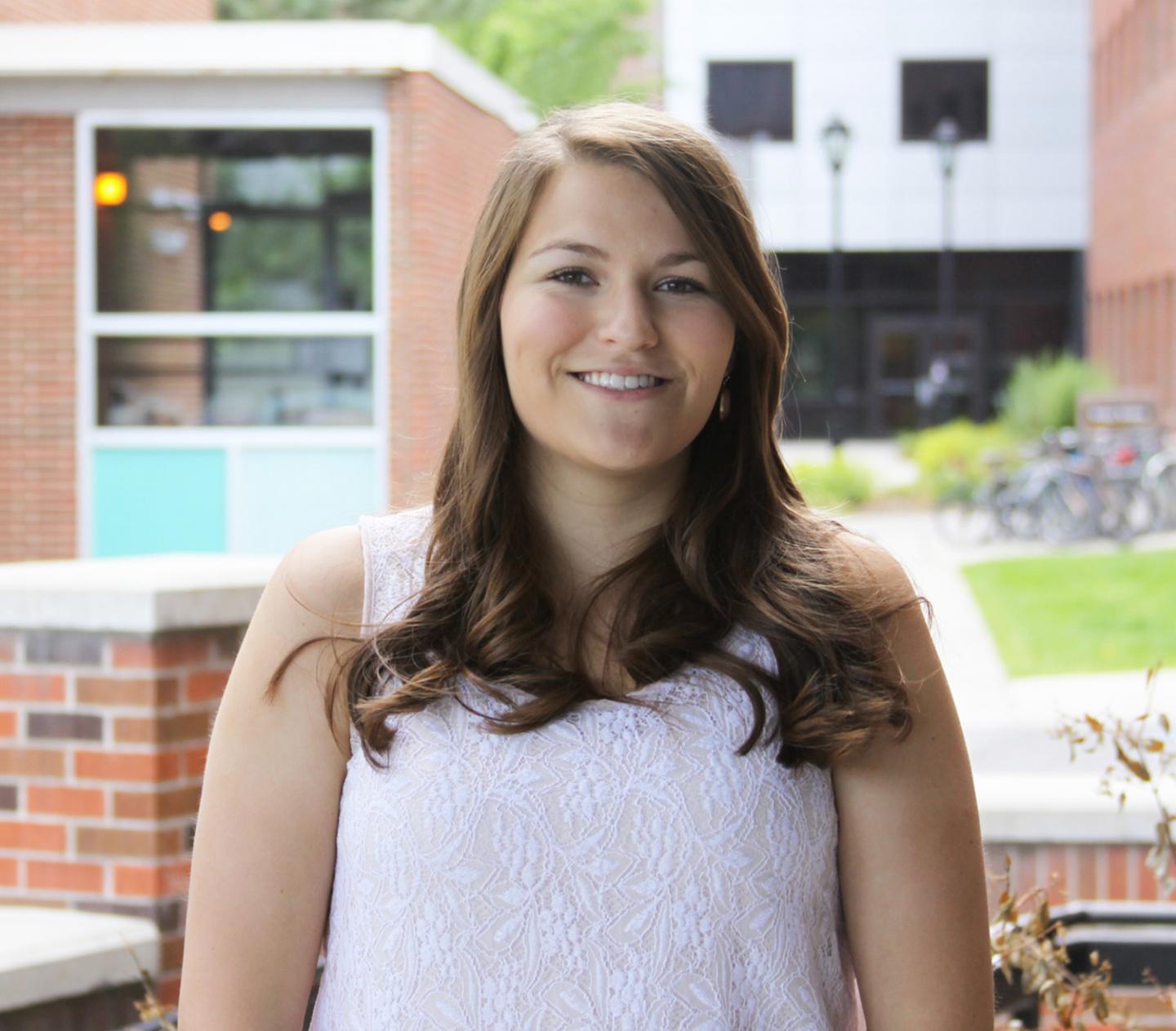
A hardworking University of Montana undergraduate student will spend the next two and half years studying the hardest-working cell in the human immune system.
Shelby Cole, a first-year pharmacy student from Malta, recently was awarded an Undergraduate Diversity Student supplement by the National Institute of Environmental Health Sciences that will fund her own individual research project studying dendritic cells. Cole is Gros Ventre and Little Shell.
The funding comes as an administrative supplement to UM Professor David Shepherd's five-year grant from the National Institutes of Health, through which his team studies dendritic cells – cells that play a pivotal role in immune system interactions. The team's goal is to develop drugs that help control immune functions – whether limiting chronic inflammation, curing autoimmune diseases, combating an infectious disease or blocking the detrimental effects of different environmental pollutants.
"I'll be doing my own project while also contributing as a member of the lab," Cole said. "I'm very excited to make new discoveries especially if they lead to new ways to help people with immune-related diseases. I just really love doing research. It's extremely rewarding – even the tedious parts."
According to Shepherd, also a pre-pharmacy student adviser, it takes a certain kind of person to work in a research laboratory.
"She's a very bright, highly motivated, hardworking student who is becoming a fantastic scientist," Shepherd said of Cole.
Shepherd recruited Cole to work in his lab after identifying certain characteristics she has that he looks for when bringing a student onto his team.
"For me, it's about finding the talent and then giving them the opportunity to develop their abilities so they can shine," Shepherd said.
After a somewhat circuitous route – with stops first at Great Falls College, Dawson Community College and some exploratory classes with UM's law school – Cole finally landed with UM's pharmacy program.
Shepherd was Cole's adviser and took note of her sincere interest in wanting to try something new in her academic program. He asked her if she would have interest conducting research. She wanted to see what it was all about, so she signed up for some undergraduate research credits last spring. Her work in the spring helped her land a summer internship with UM's Center for Environmental Health Sciences working with UM Professor Celine Beamer studying the interactions between dendritic cells and innate lymphoid cells.
"At first I wanted to be a pharmacist back at my local IHS (Indian Health Services)," Cole said. "But after doing research, that's where I want to go now."
After showing she had the chops for research, Shepherd suggested they apply for the diversity student supplement.
The grant will fund Cole to work in the laboratory part time during the academic semester and then full time during winter and summer breaks. It also will provide her with incidental money that will help offset the costs of traveling to conferences to present her research to other scientists in the field, and allow her to attend a weeklong intensive immunology crash course in California this summer. The award requires the University to provide mentorship for Cole – which is being provided by Shepherd and UM's Native American Center of Excellence – and outreach opportunities that will hopefully offer Cole the chance to visit schools and share her research with people across Montana, including Native communities.
"To me she is just a hardworking, curious student," Shepherd said, "but there really is a bonus if, at some point, she can be a role model and open the eyes of children from underserved communities to the exciting possibilities that exist in research and at UM – that's all the better."
Cole says her grandmother encouraged her to pursue science as a career path.
"She is the one that has always pushed me to go to pharmacy school," Cole said. "She was definitely really excited when I told her I was doing research, probably the most excited out of my family."
###
For more information about the National Institute of Environmental Health Sciences diversity supplement program, visit http://www.niehs.nih.gov/research/supported/training/supplements/. To learn more about research taking place in Shepherd's lab, visit http://www.umt.edu/urelations/pubs/Vision%20magazine/Vision%202014/targeted%20response.php.





